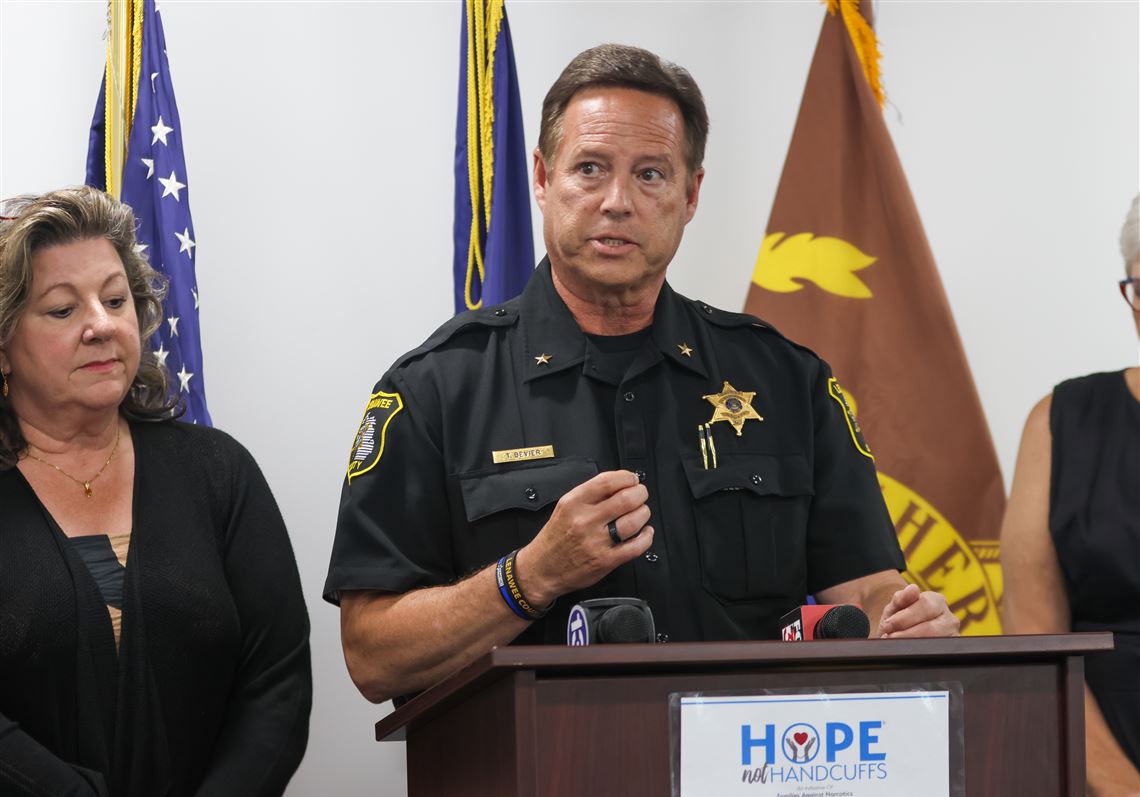
(From the Toledo Blade)
ADRIAN — When Lenawee County Sheriff Troy Bevier checks the arrest records for the county jail each morning, he often sees the same names.
The charges may be different — drug possession, shoplifting, or resisting arrest, for example — but he knows they can all stem from a common problem: substance use disorder.
The issue is an important one in Lenawee County, where first responders have administered Narcan 32 times in suspected overdoses so far this year. Fourteen of those were in Adrian, and two people have died.
To address this, the Lenawee County Sheriff’s Office and Adrian Police Department are teaming up with the Michigan-based non-profit Face Addiction Now to implement “Hope Not Handcuffs,” a state-wide initiative that assists individuals seeking help with a substance use disorder.
“We can’t keep doing the things that we’re doing and expect a different outcome,” Sheriff Bevier told a room of police officers, public officials, and advocates on Wednesday at the Lenawee County Sheriff’s Office.
“As law enforcement, as public officials in Lenawee County, we need to try things that are gonna work,” he said. “If someone has an addiction problem, and they need help, I don’t want them in my jail.”
Since launching in 2017, Hope Not Handcuffs has partnered with more than 140 police departments and community organizations throughout Michigan to connect individuals struggling with substance use with options for treatment. The program also provides additional training for law enforcement on substance use disorders.
Hope Not Handcuffs relies on a team of 600 specially-trained volunteers — “Angels” — who help connect individuals seeking recovery from substance use with resources and viable treatment options.
The program is available to anyone struggling with a substance use disorder, though individuals with felonies, domestic violence warrants, or who pose a danger to others may not be eligible.
Families Against Narcotics program director Kim Baffo said that law enforcement agencies sometimes try to “arrest their way out of the problem,” which is not always an effective solution.
“It’s sort of like if you tell somebody they’re going to be arrested for overeating,” she said. “And they go into jail, and they get a diet, but they come out, and with no literature, no knowledge of better eating, they’re expected to eat less and stay healthy. How is that going to work? It’s the same thing with substance use disorder.”
Ms. Baffo said that one of the biggest hurdles is overcoming the stigma associated with substance use.
“It might be a choice at first,” she said. “But it becomes a disease without people even realizing it.”